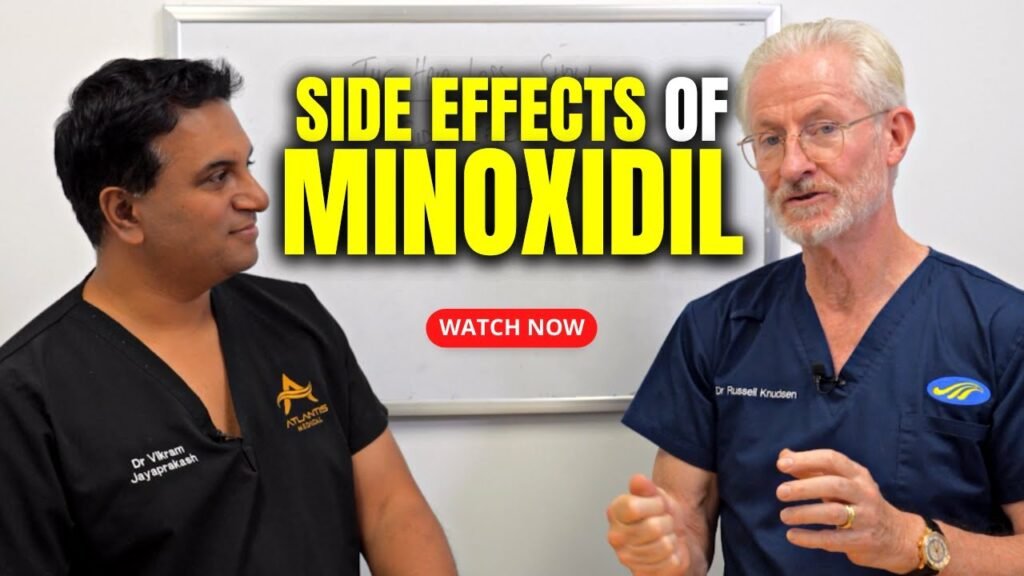Understanding Dizziness as a Side Effect of Minoxidil
Minoxidil, a well-known treatment for hair loss, is often praised for its effectiveness in promoting hair growth. However, like many medications, it can have side effects, with dizziness being one of the more commonly reported. Dizziness as a side effect of Minoxidil may occur because the medication can affect blood pressure. Originally developed as an oral medication to treat high blood pressure, Minoxidil works by dilating blood vessels, which can sometimes lead to a sudden drop in blood pressure, causing individuals to feel lightheaded or dizzy.
Why Does Minoxidil Cause Dizziness?
The mechanism behind Minoxidil-induced dizziness primarily involves its action on the cardiovascular system. By expanding blood vessels, Minoxidil can lower blood pressure, potentially leading to orthostatic hypotension—a condition where blood pressure falls significantly upon standing. This drop in blood pressure can result in dizziness, especially when transitioning from sitting or lying down to standing. Its important for users to be aware of this potential side effect, as it can impact daily activities and overall quality of life.
Managing Dizziness While Using Minoxidil
If you experience dizziness while using Minoxidil, there are several strategies you can adopt to manage this side effect. Firstly, ensure you are using the correct dosage as prescribed by your healthcare provider. Gradual position changes can help mitigate dizziness; for example, rise slowly from a seated or lying position to allow your body to adjust. Staying hydrated and avoiding alcohol can also help maintain stable blood pressure levels. If dizziness persists or worsens, its crucial to consult with a healthcare professional to discuss your symptoms and consider alternative treatments if necessary.
Recognizing the Common Symptoms of Dizziness from Minoxidil
Minoxidil, a popular medication primarily used for hair regrowth, can sometimes lead to side effects, one of which is dizziness. Understanding the symptoms of dizziness associated with Minoxidil is crucial for users to manage and address these effects effectively. Dizziness can manifest in several ways, and being able to recognize these symptoms can help in taking appropriate measures.
Symptoms to Watch Out For
Individuals using Minoxidil might experience a range of dizziness symptoms. These can include feelings of lightheadedness, unsteadiness, or a sensation that the surroundings are spinning. Its essential to note that these symptoms may vary in intensity and duration from person to person. For some, dizziness might be mild and transient, while others could experience more severe and persistent episodes.
When to Seek Medical Attention
While mild dizziness might not always be a cause for alarm, its important to know when to seek medical attention. If the dizziness is accompanied by other symptoms such as severe headache, chest pain, or fainting, it is advisable to contact a healthcare professional immediately. Additionally, if the dizziness persists or worsens over time, discussing these symptoms with a doctor can help determine if adjustments to the medication are necessary.
Being informed about the potential for dizziness and its symptoms when using Minoxidil can empower users to make informed decisions about their health and treatment options.
How Long Does Dizziness Last After Using Minoxidil?
Minoxidil, a popular medication for treating hair loss, can sometimes cause side effects, including dizziness. The duration of dizziness after using Minoxidil varies among individuals and can depend on several factors, including the dosage, frequency of use, and the individuals sensitivity to the medication. In most cases, if dizziness occurs, it is typically transient and resolves within a few hours after application. However, some users might experience dizziness for a more extended period, especially when starting the treatment.
Factors Influencing the Duration of Dizziness
The persistence of dizziness can be influenced by various factors. Sensitivity to Minoxidil is one such factor, where individuals who are more sensitive to the medication might experience prolonged symptoms. Dosage and concentration also play a critical role; higher concentrations of Minoxidil are more likely to cause side effects, including dizziness. Additionally, individual health conditions, such as pre-existing cardiovascular issues, can exacerbate dizziness, potentially prolonging its duration. Its crucial for users to monitor their symptoms and consult a healthcare provider if dizziness persists or worsens.
Managing and Reducing Dizziness
To manage and potentially reduce the dizziness associated with Minoxidil use, users are advised to follow the prescribed dosage and application instructions carefully. Applying the medication at night might help minimize the impact of dizziness during the day. Hydration and maintaining a balanced diet can also support overall health and might reduce the intensity of side effects. If dizziness remains a significant concern, consulting a healthcare professional is advisable, as they might recommend adjusting the dosage or exploring alternative treatments.
Managing and Reducing Dizziness Caused by Minoxidil
Experiencing dizziness as a side effect of Minoxidil can be unsettling, but understanding how to manage and reduce this sensation can significantly improve your comfort. Minoxidil, commonly used for hair growth, can sometimes lead to dizziness due to its vasodilatory effects, which lower blood pressure. To manage this, it is crucial to monitor your bodys response to the medication. Start with a lower dose if possible and gradually increase it, allowing your body to adjust to the medications effects. Always consult with a healthcare professional before making any changes to your dosage to ensure it is safe for your specific health needs.
Staying Hydrated and Maintaining a Balanced Diet
Ensuring adequate hydration and maintaining a balanced diet are key strategies in reducing dizziness associated with Minoxidil. Dehydration can exacerbate dizziness, so its essential to drink plenty of water throughout the day. Incorporating foods rich in electrolytes, such as bananas, spinach, and avocados, can help maintain proper fluid balance and prevent drops in blood pressure. Avoiding excessive caffeine and alcohol is also advisable, as these substances can contribute to dehydration and dizziness. A balanced diet supports overall cardiovascular health, which can mitigate some of the side effects of Minoxidil.
Incorporating Lifestyle Adjustments
Implementing certain lifestyle adjustments can further help in managing dizziness from Minoxidil. Rise slowly from sitting or lying positions to prevent sudden drops in blood pressure that can lead to dizziness. Practicing relaxation techniques such as deep breathing exercises, yoga, or meditation can also help manage stress levels, which might otherwise contribute to dizziness. Regular, gentle exercise can improve cardiovascular health and enhance blood circulation, potentially reducing dizziness episodes. Always listen to your body and avoid activities that could pose a risk if you feel dizzy.
When to Seek Medical Attention for Dizziness Related to Minoxidil Use
Dizziness is a known side effect of minoxidil, a medication commonly used for hair regrowth. While mild dizziness can occur as your body adjusts to the treatment, it is crucial to recognize when this symptom might indicate a more serious issue. If you experience dizziness that persists beyond a few days or worsens over time, it is essential to consult a healthcare professional. Persistent dizziness can interfere with daily activities and may be a sign that your body is not tolerating the medication well.
Seek immediate medical attention if you encounter dizziness accompanied by other alarming symptoms. These can include chest pain, shortness of breath, or a rapid heartbeat, which may suggest cardiovascular complications. Additionally, if dizziness leads to fainting or severe imbalance, it is critical to seek prompt medical evaluation. These symptoms could indicate a serious adverse reaction requiring immediate intervention.
In cases where dizziness is severe and impacts your quality of life, discussing alternative treatments with your doctor is advisable. Your healthcare provider might recommend dosage adjustments or alternative therapies to mitigate side effects. Monitoring your symptoms and maintaining open communication with your healthcare provider can help ensure that your treatment with minoxidil is both safe and effective.


